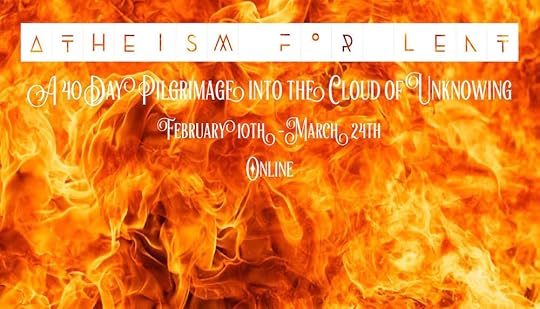A Challenge for Churches to do Atheism for Lent

What passes for atheism in mainstream culture often comes across as a type of one-dimensional scientistic discourse as problematic as the superficial form of theism it critiques. Not that this is anything new. Karl Marx once remarked that much of what went on under the name of ‘theism’ and ‘atheism’ in his day sounded like little more than people earnestly fighting about whether or not the tooth fairy existed. A debate that may be appropriate for five years olds, but hardly for adults.
However, in contrast to these stagnant, rather childish, debates, there has always been a refreshing stream of atheism that is intellectually rich, existentially deep, artistically daring and politically revolutionary. It is also an atheism that many within religious traditions, and outside them, have seen as intimately related to the life of faith. More religiously orthodox philosophers like Merold Westphal (Suspicion and Faith) and Bruce Benson (Graven Ideologies) have seen the best atheism as a type of purifying fire that lays waste to the infantile and superstitious elements of faith. While other, less orthodox thinkers, have argued that there is an atheism that dives deep into the true depths of faith.
Mystics like Simone Weil, theologians such as Paul Tillich, and philosophers as great as Martin Heidegger, have all argued that there is an atheism that is closer to the truth of faith than theism. A claim that is also argued by eminent figures such as Ernst Bloch, Jacques Derrida, John Caputo and Slavoj Žižek.
It is this very idea that I aim to explore in my Atheism for Lent course. Yet this isn’t some dry academic event. While there will be six lectures from me (that you can listen to live, or download at a later date), the main bulk of the course involves taking time out of your day over the lenten period to reflect on a searing critique of religion. For the first three weeks we will concentrate on philosophical atheism, while for the next three weeks we’ll look specifically at atheism in a theological context.
We already have over 100 individuals signed up, but I’m keen to get some more churches to take the course. I understand that this might seem like a rather dangerous move to make, but actually I think it could be a fun, positive and engaging congregational event. Here’s how I think it could be done,
- Each week one of the excerpts from that weeks Atheism for Lent is read out.
- The speaker then gives a talk that explores what we might glean from that reading. For example, it might be one where Freud writes about how belief can be something we hold because we are afraid of dying. The talk could help people reflect on whether there might be a little truth in that in their own lives, and what a faith might look like which wasn’t based on fear. The readings in the later three weeks will more explicitly relate to this.
- One night a week anyone who wants to do the whole course can meet together and watch the lecture I give, then discuss it.
- Anyone in the congregation who wants to have all the readings, and access to my talks can do so.
This would take place over six weeks, and might really interest and intrigue your congregation. It will also help to move the atheism/theism debate into a much healthier position. In addition to this it might be really good publicity for your community. For example, local newspapers might find this lenten practice rather interesting and want to cover it.
If you’d like to sign up as an individual, or as a community, click here
Peter Rollins's Blog
- Peter Rollins's profile
- 314 followers



